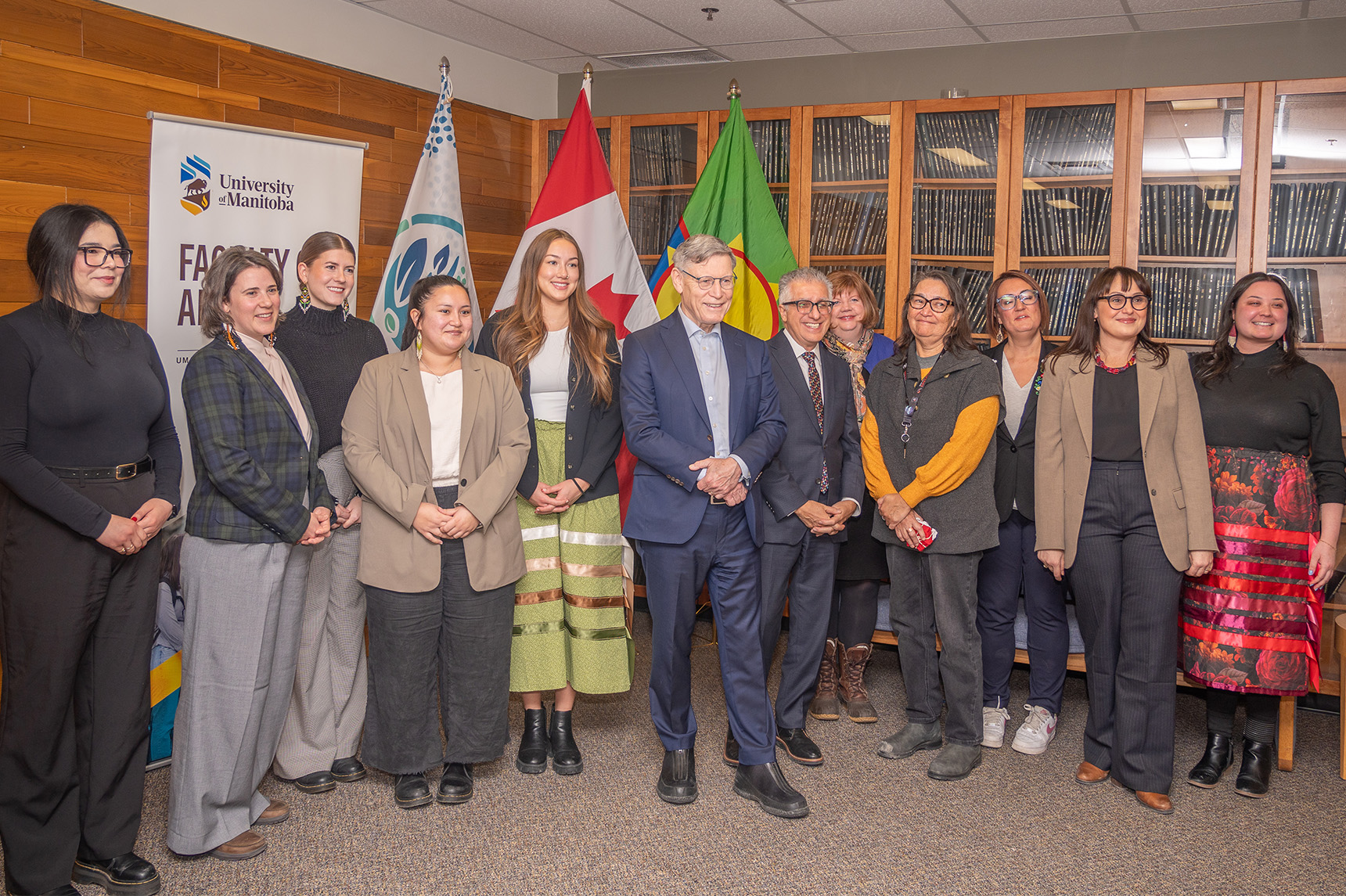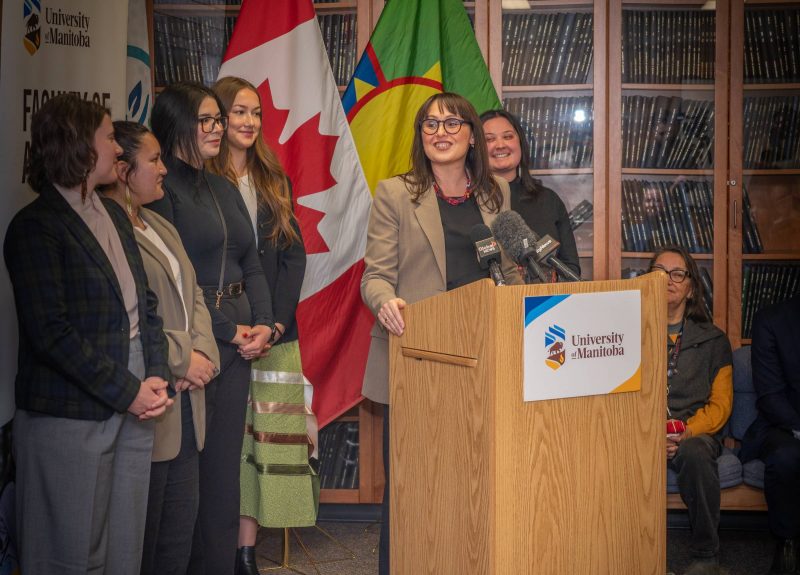
MP Terry Duguid presents the Canadian Reconciliation Barometer team with funding from the Canada History Fund Program. Credit: J. Ogbonnaya
New funding will help build the capacity of the Canadian Reconciliation Barometer
More than $200,000 in support for those working toward Reconciliation
Lead by a team of researchers in the Department of Psychology, the Canadian Reconciliation Barometer is an online survey that Indigenous and non-Indigenous people in Canada complete. The survey uses the best practices in the science of psychological measurement and public polling to help enhance the understanding, tracking, and promotion of reconciliation in Canada. And with new funding from Canadian Heritage, their impact is about to grow!
Today, MP Terry Duguid – alongside President Michael Benarroch and principal investigator Dr. Katherine Starzyk – announced $206,029 will be awarded to the Reconciliation Barometer under the Canada History Fund Program to help develop an advisory group for the project that includes Elders, Traditional Knowledge Keepers, Survivors, and youth and to develop learning materials in the form of infographics, info sheets, and tool kits for educators. The ceremony was opened by Grandmother-in-Residence Elder Karen Courchene who brought greetings and a blessing to those in attendance.

Dr. Starzyk and team. Credit: J. Ogbonnaya
“Our government’s support for the Canadian Reconciliation Barometer Project reflects our unwavering dedication to advancing the vital process of reconciliation between Indigenous and non-Indigenous peoples. This new funding will strengthen initiatives aimed at enhancing our understanding of this important journey,” said MP Duguid.
“What Reconciliation and decolonization means to people can be difficult to measure, but it is essential that we track progress—and hold ourselves accountable—which is why today’s funding announcement is so very welcome: The Reconciliation Barometer is a key tool for us all,” said UM President Michael Benarroch. “I am grateful to be a part of many positive events celebrating our ongoing commitment to advancing Reconciliation.”
“We have focused on understanding what truth and reconciliation means to Indigenous and non-Indigenous people in Canada on an ongoing and evolving basis and respectfully tracking progress using the best practices,” said principal investigator and Professor of Psychology in the Faculty of Arts Dr. Kathrine Starzyk. “To the Government of Canada and especially Canadian Heritage, for this support, we say thank you, merci, miigwetch, maarsi, háw’aa! Because of this funding, we can continue to shed light on where we are in the long and winding path toward reconciliation and foster mutually respectful relationships at both personal and systemic levels so that Indigenous peoples and others in Canada can enjoy the good life.”
More than half of the research team is Indigenous (Anishinaabe, Cree, Haida, and Métis). They also have many non-Indigenous identities. Collectively, through each of their lived experiences, the team seeks to understand what reconciliation means to Indigenous and non-Indigenous peoples in Canada, on an ongoing and evolving basis.
Read the latest annual report and learn more about the Canadian Reconciliation Barometer.






